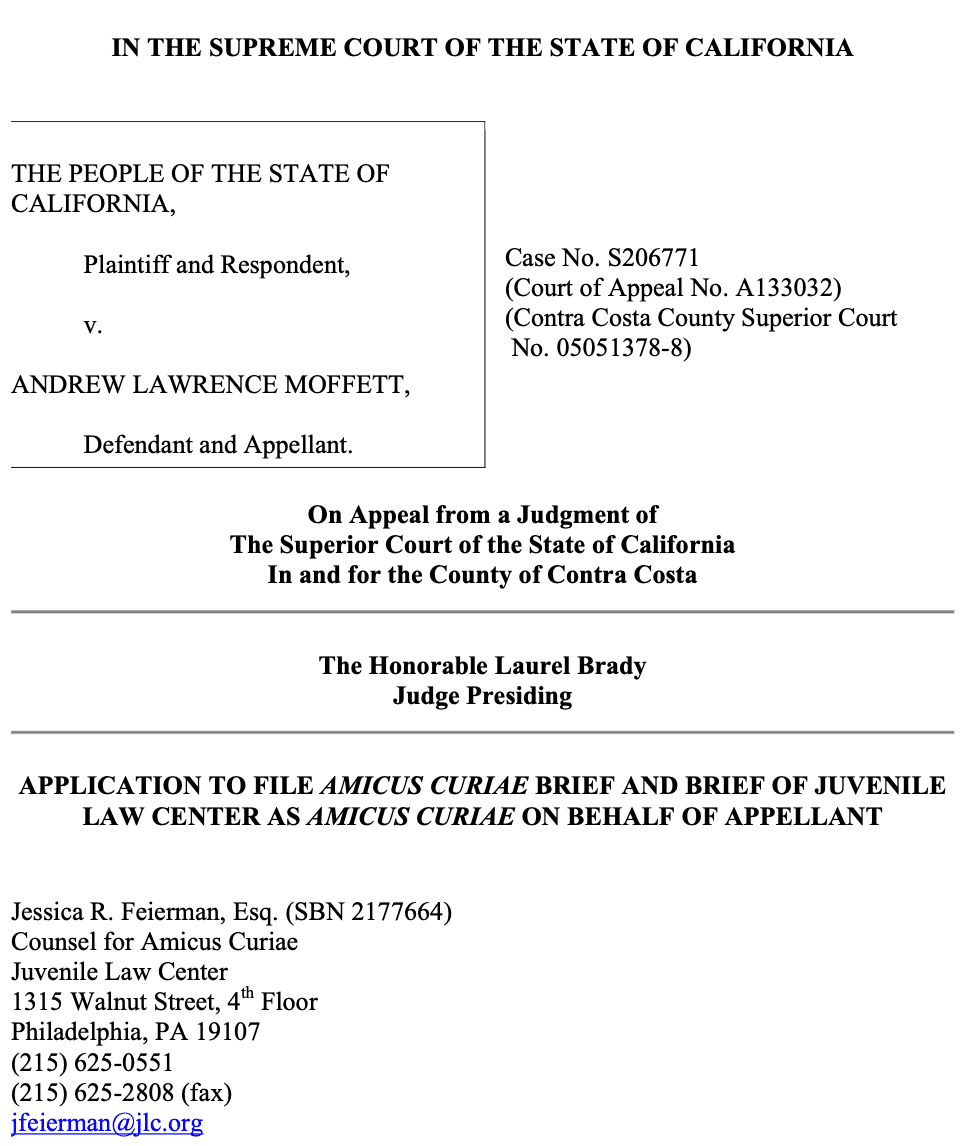
Summary of Argument
In Miller v. Alabama, 567 U.S. , 132 S. Ct. 2455, 183 L.Ed.2d 407 (2012), the United States Supreme Court held that the mandatory imposition of life without parole sentences on juvenile offenders is unconstitutional. Under current California law, the presumptive sentence for any juvenile age 16 or older convicted of first degree murder with special circumstances is life imprisonment without the possibility of parole. See Cal. Penal Code § 190.5(b). California’s statute effectively imposes life without parole on juveniles in a mandatory fashion, in violation of Miller, as life without parole is the mandatory penalty unless the judge finds justification to deviate from this presumptive penalty. California Penal Code § 190.5(b) therefore fails to impose an individualized sentence as required by Miller, and contradicts Miller’s requirement that juvenile life without parole sentences be uncommon. Further, any life without parole sentence for a juvenile convicted of felony murder is inconsistent with adolescent development and neuroscience research and is unconstitutional pursuant to Miller and Graham v. Florida, 130 S. Ct. 2011 (2010) (holding that a life without parole sentence can never be imposed upon a juvenile when there is no finding that the juvenile either killed or intended to kill). Accordingly, Appellant Andrew Lawrence Moffett’s sentence must be vacated and a new constitutional sentence imposed.